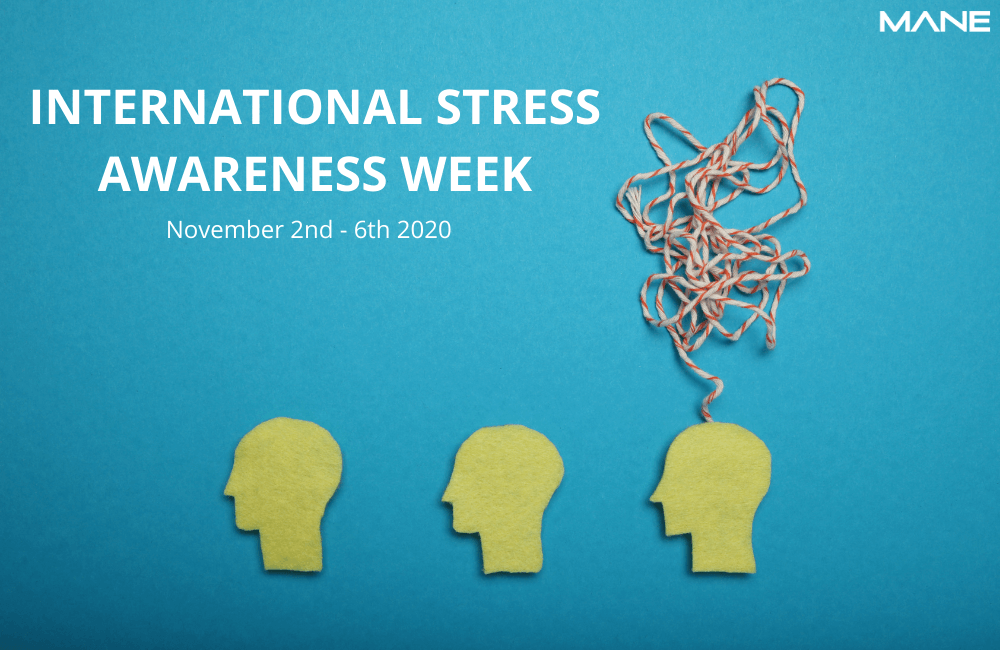International Stress Awareness Week
03 Nov, 202010 minsThis week is International Stress Awareness Week. It was created in 2018 to raise awareness ...

This week is International Stress Awareness Week. It was created in 2018 to raise awareness about the different ways we can prevent stress, following the establishment of Stress Awareness Day back in 1998, which this year falls on Wednesday 4th November 2020.
Stress is a common part of life, but often it can lead us feeling upset, burnt out or overloaded. In the fast-paced world that we live in, juggling many different responsibilities means that it’s easy to put ourselves second. We forget to look after ourselves properly which can then lead to feeling the ill-effects of being stressed.
Stress and mental health problems have never been more prevalent than they are now, with the challenges that the COVID-19 pandemic has brought and continues to bring to our everyday lives. With another four week lockdown introduced in the UK lasting from the 5th November until at least the 2nd of December, it’s essential that we are looking after ourselves and reaching out to others.
The following statistics were reported in June 2020 by the Office for National Statistics:
- Almost one in five adults (19.2%) were likely to be experiencing some form of depression during the COVID-19 pandemic, doubling from around 1 in 10 (9.7%) before the pandemic
- 84.9% of adults reported feeling stressed or anxious during the COVID-19 pandemic
This serves to prove the importance of being able to put ourselves first and take control of our mental health whilst living and working during these unsettling times.
Millions of us around the world are experiencing high levels of stress, which in turn is damaging our health. Stress is, in fact, one of the biggest public health challenges of our time, but still, to this day it is not taken as seriously as physical health concerns. Stress is a significant factor in mental health problems such as anxiety and depression. Not only this, it is also linked to physical problems such as heart disease. We need to start to understand what is causes us stress and take the correct steps in trying to reduce it, not only for ourselves but for the people around us.
Here are five tips which may help you minimise stress:
Get moving – participating in exercise can help relieve tension and relax your mind.
Stay connected – catch up with friends and family on a regular basis.
Be kind to others – offer support to others. Acts of kindness boost endorphins, which result in not only the other person feeling better, but also yourself.
Self-care – make sure you are taking care of yourself and your mental health by taking time out to do things you enjoy.
Try to be positive – look for the positives in life and things in which you are grateful for. Times will get better.
Here at Mane, we support all of our employees and take mental health extremely seriously. We have mental health first aiders, an employee assistance programme and have established a culture of openness. We believe Stress Awareness Week is a great campaign which will hopefully inform more and more people about stress and provide them with the right information about how to handle it.


